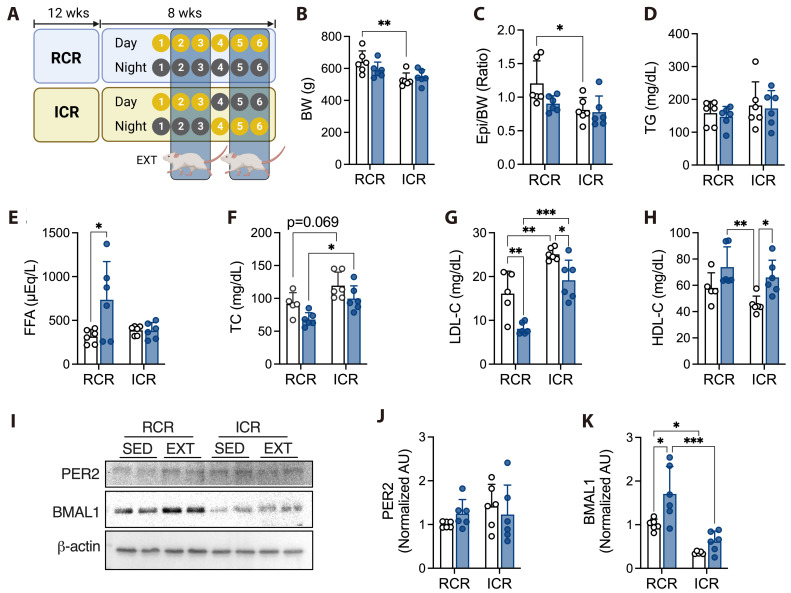Fig. 4. EXT improves LDL-C and HDL-C levels without altering body composition and BMAL1 muscle gene expression.
(A) Induction of 8 weeks endurance training followed by 12 weeks CR disturbance. (B, C) Body composition and (D-F) blood profiles did not show improvement. (G) LDL-C levels (RCR n = 5) decreased while (H) HDL-C (RCR n = 5) expression increased. (I-K) A Western blot analysis presents no significant change in circadian clock protein levels. All data are presented as mean ± SEM. EXT, endurance exercise training; LDL-C, low-density lipoprotein cholesterol; HDL-C, high density lipoprotein cholesterol; CR, circadian rhythm; RCR, regular circadian rhythm (n = 6); ICR, irregular circadian rhythm (n = 6); BW, body weight; Epi/BW, epididymal fat to body weight ratio; TG, triglyceride; FFA, free fatty acid; TC, total cholesterol; PER2, period circadian regulator 2; BMAL1, brain and muscle ARNT-like 1; SED, sedentary. *p < 0.05, **p < 0.01, ***p < 0.001 as determined using two-way ANOVA and Tukey’s post-hoc analyses (n = 6).

